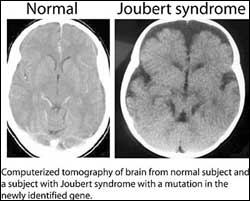Researchers have identified a new gene that causes a common form of inherited Parkinson’s disease (PD) and whose understanding they believe “will impact not only patients and their families but will open novel avenues of research aimed at identifying and ultimately halting the molecular events that lead to PD.”
The international research team reported finding the gene in a mutant form in five families from Spain and the United Kingdom. They have named the protein “dard
Surfing the Web could become a much more effective experience thanks to new approaches endorsed at this year’s ACM (Association of Computing Machinery) Hypertext Conference.
In its current state, the commonly used link in a Web page allows people to search the Web and to use hyperlinks to jump from one page to another. The down side is that when people click links, pages load on top of one another and unless they can recall the route taken, it is easy to lose much of the conten
For the first time, researchers from the Flanders Interuniversity Institute for Biotechnology (VIB) connected with the Catholic University of Leuven have shown clearly that receptors in yeast cells detect and react to nutrients in the cell. The chance is great that this is also the case with human cells. Because about 40% of today’s medicines act on receptors in our cells, this research opens new possibilities for the treatment of metabolic disorders such as diabetes and obesity.
A University of Florida scientist has grown a living “brain” that can fly a simulated plane, giving scientists a novel way to observe how brain cells function as a network.
The “brain” — a collection of 25,000 living neurons, or nerve cells, taken from a rat’s brain and cultured inside a glass dish — gives scientists a unique real-time window into the brain at the cellular level. By watching the brain cells interact, scientists hope to understand what causes neural disorde

Researchers at the University of California, San Diego (UCSD) School of Medicine have discovered the gene for a form of Joubert Syndrome, a condition present before birth that affects an area of the brain controlling balance and coordination in about 1 in 10,000 individuals. Their study, published in the November 2004 issue of the American Journal of Human Genetics*, pointed to mutations in a gene called AHI1 that lead to the production of a protein the scientists named Jouberin.
Purdue University chemists have developed a fast, efficient means of analyzing chemical samples found on surfaces, resulting in a device that could impact everything from airport security to astrobiology to forensic science.
A team, including R. Graham Cooks, has improved the mass spectrometer, a device well known to chemists for its ability to provide information on the composition of unknown substances. Mass spectrometers, essential tools in any modern chemistry lab, are often